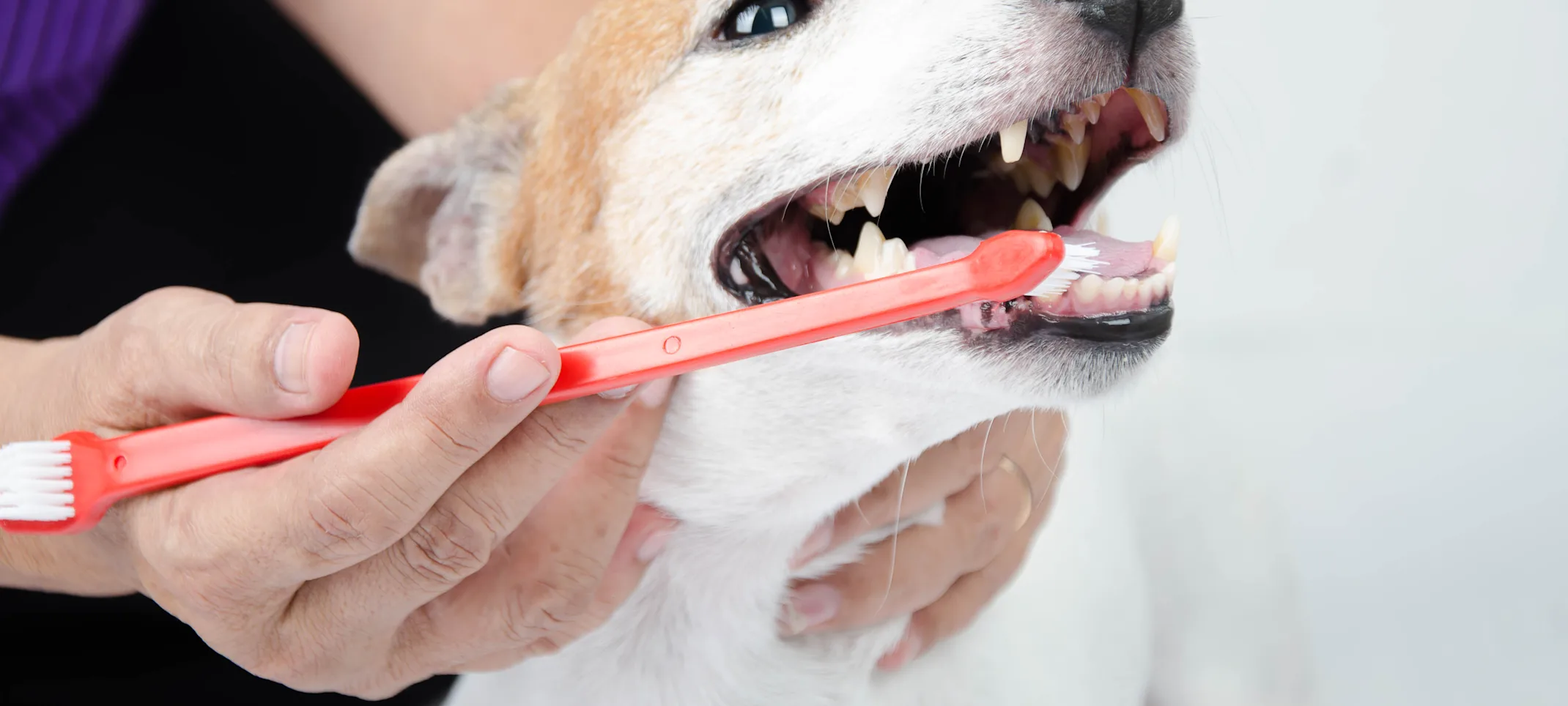Channel Islands Veterinary Hospital
Dentistry
Annual dental exams and cleanings are recommended to protect your pet from many health problems and help them maintain a healthy and clean mouth.

Overview
Imagine what your mouth would feel like if you never brushed your teeth or went to the dentist for a cleaning. For many dogs and cats, this is a painful reality; dental disease is the most frequently diagnosed health problem in pets. According to the American Veterinary Dental Society, more than 80% of dogs and 70% of cats have dental disease by the age of 3.
Why do pets need dental care?
Many health problems start in the mouth. Plaque, tartar, periodontal disease, and infected teeth serve as a source of inflammation and infection for the rest of the body.
Dental disease is one of the most common problems that we see in dogs and cats. It can cause drooling, reluctance to eat, swelling, bad breath, redness of the gums, loose teeth and tooth discoloration.
Common signs of dental disease include:
Yellow or brown buildup (tartar) on the teeth
Red, swollen or bleeding gums
Bad breath
Excessive drooling
Changes in eating or chewing habits
Pawing at the face
Swelling or abscess on the face
Loose teeth
Depression or lethargy
When should I seek dental care for my pet?
Even if your dog or cat has not yet demonstrated these symptoms, we recommend that you have a veterinarian evaluate your pet’s dental health at least once a year. Bacteria and food debris accumulate around the teeth and, if left unchecked, will lead to deterioration of the soft tissue and bone surrounding the teeth. This decay can result in irreversible periodontal disease, tooth loss and possibly expensive oral surgery.
Dental disease can also affect other organs in the body; bacteria in the mouth can get into the bloodstream and cause serious infections in the kidneys, liver, lungs and heart. If these dental problems aren’t detected early and treated promptly, they can often lead to systemic infections or permanent damage to internal organs and even possibly result in death. A complete physical exam combined with laboratory tests can determine if an infection in the mouth has spread to other parts of the body so that appropriate treatment can be started immediately. However, as with most things in life, an ounce of prevention is worth a pound of cure, so preventing dental disease with routine dental cleanings is the best way to avoid potentially painful and costly health problems.
In order to do a proper exam and deep cleaning of your pet’s full oral cavity, general anesthesia is essential. Without general anesthesia, there is no way for us to safely and adequately visualize all the surfaces of each tooth in your pet’s mouth and probe the periodontal pockets surrounding each individual tooth, not to mention trying to do any kind of dental surgery or extraction. In addition, having an endotracheal tube in place for your pet to breathe during anesthesia prevents any dental debris or fluids from entering its airway, leading to possible respiratory infections. Once your pet’s teeth are cleaned they are then thoroughly polished, which helps delay future tartar buildup. If necessary, dental x-rays may be taken to evaluate any questionable teeth and appropriate therapy taken. Unfortunately in many cases, the extent of the dental disease is so severe that extracting the tooth is the best solution to prevent further damage to adjacent teeth. It is not uncommon for clients to comment on how much better and more youthful their pet feels after their dental procedure!
The truth about “anesthesia-free dentistry:”
It is nearly impossible to do a proper evaluation and cleaning of your pet’s teeth in an anesthesia-free setting. Dental cleanings without the benefit of general anesthesia are not doing your pet any favors and are a waste of your money. Consider how much cooperation and understanding is required on your part when you have your teeth cleaned by your dentist. It’s unreasonable to expect a dog or cat to remain just as still for a proper exam and cleaning to be performed when it is getting its hair and nails done by the groomer! This doesn’t take into account the possible damage to your pet’s gums, tongue or lips during the struggle and the false sense of security of inadequately cleaned and examined teeth. It’s much like putting a fresh coat of paint on a wall in your house that has dry rot… it looks great, but the wall will eventually collapse and your entire house may fall over…. certainly not the most cost-efficient solution!
Our goal is to provide the best possible dental health care for your pet, which should not only save you money in the long run but will also result in the healthiest and most comfortable outcome for your pet, as well as add to his or her overall longevity.
So, schedule your pet’s dental exam today! We can also show you how to brush your pet’s teeth and recommend foods and treats that will help combat plaque and tartar buildup, thereby prolonging the time intervals between dental cleanings.
